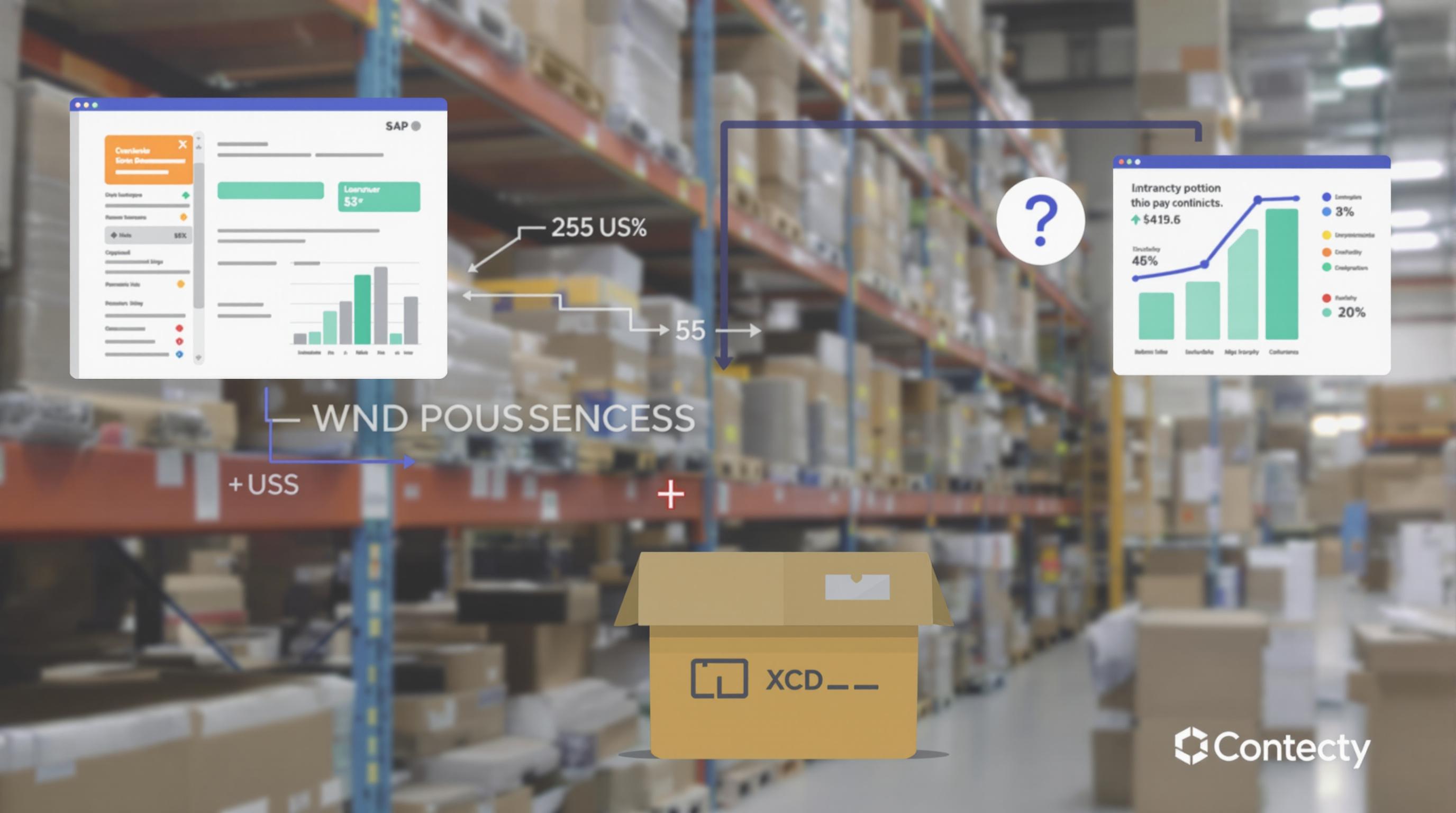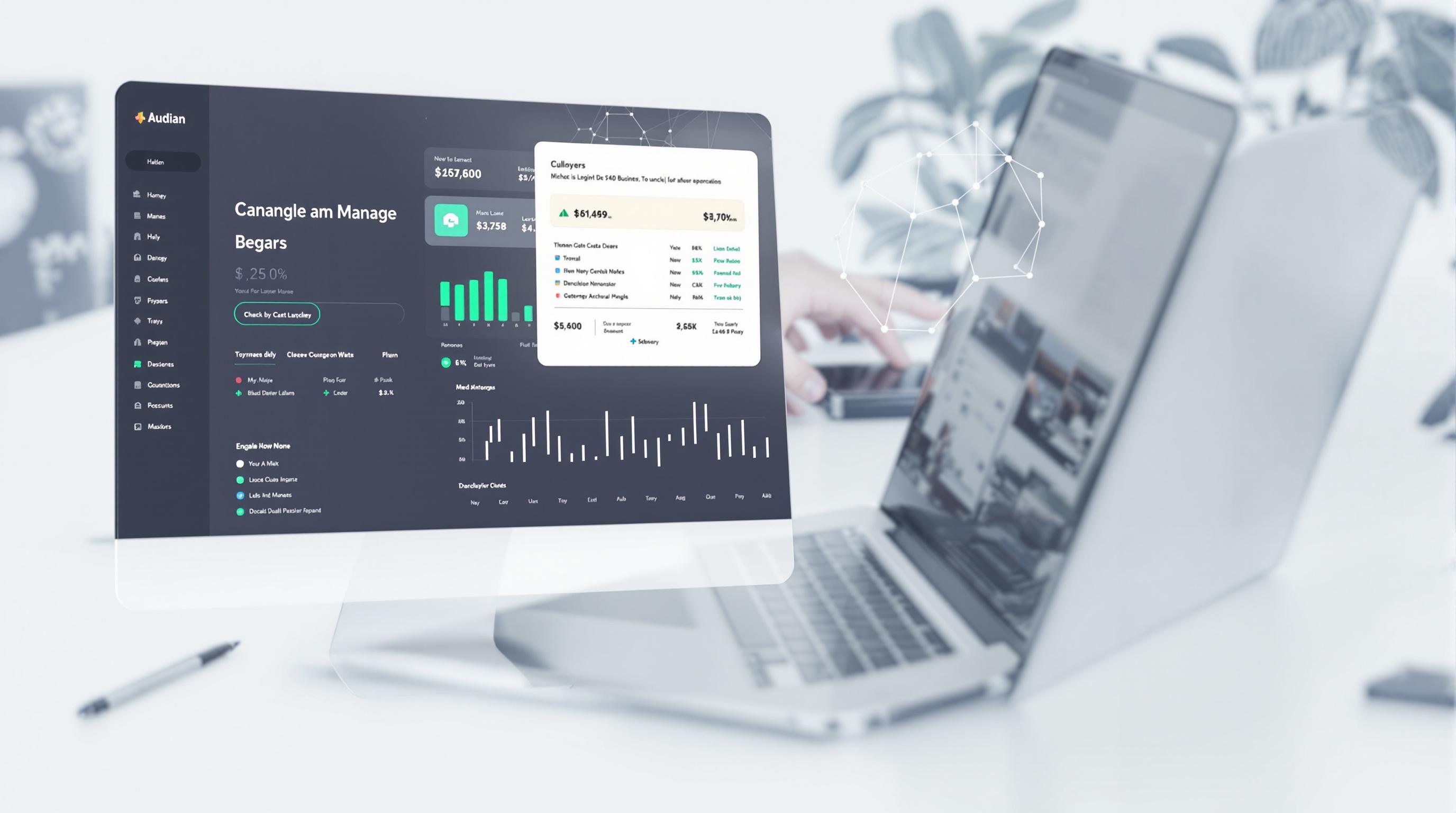Related Articles
- How Emotional Spending Biases in Leadership Can Influence Company Financial Transparency and Accountability
- Unveiling the Role of Employee Psychology in Shaping Unexpected Business Budget Outcomes
- Top 6 Disruptive Invoice Platforms Launched Since 2019 Tackling Automation Bottlenecks in Unconventional Ways
- Top 6 Smart Accounting Softwares Since 2019 That Revolutionize Tracking Business Tax Write-Offs
- The Rise of Biometric Authentication in Digital Finance: A New Frontier for Secure Business Transactions
- How Small Nonprofits Leverage Alternative Finance Tools to Navigate Accounting Challenges Off the Radar
5 Innovative Inventory-Focused Accounting Solutions Reshaping How Small Businesses Move Beyond QuickBooks
5 Innovative Inventory-Focused Accounting Solutions Reshaping How Small Businesses Move Beyond QuickBooks
5 Innovative Inventory-Focused Accounting Solutions Reshaping How Small Businesses Move Beyond QuickBooks
Introduction: The Limitations of QuickBooks for Inventory Management
QuickBooks has long been a trusted solution for small business accounting due to its ease of use and broad functionality. However, when it comes to inventory management, QuickBooks sometimes falls short, especially for businesses with growing or complex inventory needs. Its basic inventory features may not support real-time tracking, detailed reporting, or multi-location inventory, which challenges efficiency and accuracy for small business owners.
As small enterprises scale, they require more dynamic solutions that integrate inventory management seamlessly with accounting processes. This need is driving the adoption of innovative tools designed specifically to handle modern inventory complexities. These solutions offer enhanced tracking, automation, and insight, enabling businesses to operate smarter and maintain financial accuracy beyond what QuickBooks alone can deliver.
This article explores five leading accounting solutions with strong inventory focus, illustrating how they help small businesses transition beyond QuickBooks to optimize both finance and inventory operations.
1. NetSuite ERP: Comprehensive Cloud-Based Integration
NetSuite ERP is a cloud-based enterprise resource planning system that offers powerful inventory management features integrated directly with accounting and financial modules. Small businesses seeking to unify their operations under one platform benefit from real-time visibility of inventory levels, purchase orders, and sales forecasts.
Its advanced automation capabilities help reduce manual errors and improve inventory accuracy. Businesses can manage multiple warehouses, track items by serial or lot numbers, and gain detailed reporting across inventory lifecycle stages. NetSuite’s scalability ensures that as companies grow, their accounting and inventory systems remain tightly aligned.
According to Gartner’s 2023 Magic Quadrant for Cloud ERP for Product-Centric Enterprises, NetSuite is recognized for its flexibility and depth in inventory control, making it a top choice for businesses moving beyond basic QuickBooks functions (Gartner, 2023).
2. Zoho Inventory: Affordability and User-Friendly Automation
Zoho Inventory stands out as a cost-effective solution that integrates with Zoho Books and other Zoho apps, providing seamless inventory tracking alongside accounting. It is well-suited for small businesses and startups looking for an intuitive interface combined with automation features.
Users can track inventory in multiple sales channels and warehouses, automate reorder points, and synchronize inventory data with their accounting records. Zoho Inventory’s real-time updates help prevent overselling and stockouts, which are common issues with simpler accounting software.
Its integration with shipping carriers and e-commerce platforms further streamlines order fulfillment. Zoho’s transparency and easy setup have made it popular among small businesses transforming their inventory management from manual processes to automated systems (Zoho Corporation, 2023).
3. Cin7: Unified Inventory and Point-of-Sale System
Cin7 is designed to bring together inventory management, accounting, and point-of-sale (POS) in an integrated cloud platform. This makes it highly valuable for retail businesses that require real-time stock control combined with financial oversight.
Its features include barcode scanning, automated order generation, and detailed inventory analytics that improve purchasing and sales forecasting. Cin7 also supports dropshipping and third-party logistics, enabling businesses to extend their inventory reach without losing financial control.
The platform’s accounting integration with systems beyond QuickBooks, such as Xero and MYOB, allows for flexible bookkeeping while maintaining tight inventory synchronization. According to industry reports, Cin7 has reduced inventory carrying costs by up to 20% for its users (CIN7, 2023).
4. TradeGecko (now QuickBooks Commerce): Enhanced Inventory for Growing Businesses
While originally a separate platform, TradeGecko’s rebranding to QuickBooks Commerce reflects its focus on bridging powerful inventory management with accounting. It targets growing small to mid-sized businesses that need more robust inventory control than traditional QuickBooks offers.
The platform supports multi-channel sales, detailed SKU tracking, and automated workflows to reduce manual data entry. TradeGecko’s cloud infrastructure ensures that inventory data is synced across sales and accounting, improving accuracy and decision-making.
This enhanced integration helps businesses avoid errors common in spreadsheet-based inventory tracking. The system’s user-centric design and automation help store owners focus on growth rather than administrative burdens (Intuit, 2023).
5. DEAR Systems: Advanced Inventory and Manufacturing Accounting
DEAR Systems offers an end-to-end inventory and order management platform integrated with accounting features tailored for small businesses involved in manufacturing, wholesale, or distribution. Its strength lies in managing complex inventory demands alongside financial reporting.
Users benefit from batch and expiry tracking, production management, and supplier management—all while maintaining accurate accounting records. DEAR reduces accounting redundancies through real-time stock and cost updates tied directly to financial statements.
Industry reviews praise DEAR Systems for enabling businesses to improve inventory turnover rates while ensuring profitability and compliance (Product Hunt, 2023). This makes it an ideal upgrade path for companies outgrowing QuickBooks’ inventory functionalities.
6. The Importance of Real-Time Inventory Insights
Traditional accounting software like QuickBooks often lacks real-time inventory tracking, leading to delays and inaccuracies in financial data. Innovative inventory-focused solutions fill this gap by providing instant updates that reflect current stock statuses.
Real-time insights allow business owners to make proactive decisions on purchasing, sales, and cash flow management. For example, automated reorder alerts help prevent stockouts, while immediate cost recognition enhances profit analysis.
Such capabilities improve operational efficiency, reduce losses, and strengthen customer satisfaction through timely order fulfillment. Real-time data sync enhances the overall accuracy of accounting records, contributing to better financial integrity.
7. Automation: Reducing Manual Errors and Saving Time
Manual inventory counting and data entry are both time-consuming and error-prone, creating discrepancies between physical stock and reported figures. Modern inventory and accounting solutions incorporate automation to streamline these processes.
Automated workflows in software like Zoho Inventory and Cin7 can handle reordering, invoicing, and inventory reconciliations without human intervention. Integration with barcode scanners and POS systems ensures accurate data capture from the source.
By reducing manual efforts, businesses not only save time but also improve accuracy and compliance. This automation fosters greater confidence in financial reports and frees up resources to focus on growth-driven activities.
8. Multi-Channel and Multi-Location Inventory Management
Small businesses increasingly sell through multiple online and offline channels, complicating inventory tracking. Solutions like NetSuite and TradeGecko accommodate multi-channel sales by centralizing inventory data from e-commerce, brick-and-mortar stores, and warehouses.
Managing inventory across locations ensures better stock visibility and avoids overstocking or stockouts in any one channel. This synchronization maintains accurate costing and revenue reporting within accounting systems.
Enhanced multi-location capabilities help businesses respond to market demands swiftly and maintain consistent customer experiences. As sales diversify, such inventory management sophistication becomes critical to financial and operational health.
9. Scalability: Preparing Small Businesses for Growth
Growing businesses require scalable inventory-focused accounting solutions that adapt without complex migrations. Platforms like DEAR Systems and NetSuite ERP offer modular features that expand with business needs.
This scalability ensures that inventory management and financial accounting evolve seamlessly, supporting larger SKUs, additional warehouse sites, and growing transaction volumes. The ability to scale reduces disruption and maintains data integrity through growth phases.
By investing in scalable systems early, small businesses avoid costly transitions and maintain control over both inventory and finances as they expand, providing a competitive advantage in dynamic markets.
10. Conclusion: Moving Beyond QuickBooks with Inventory-Driven Accounting
The landscape of small business accounting is rapidly changing as inventory demands become more intricate. While QuickBooks remains popular, its basic inventory features may no longer suffice for growing enterprises.
Innovative, inventory-focused accounting solutions like NetSuite, Zoho Inventory, Cin7, TradeGecko (QuickBooks Commerce), and DEAR Systems are reshaping how small businesses manage their books and stock. These platforms deliver automation, real-time insights, multi-channel capabilities, and scalability that provide critical advantages.
By adopting such tools, small businesses can reduce errors, save time, and gain financial clarity that supports strategic growth. This evolution marks a pivotal step for companies ready to move beyond QuickBooks and implement comprehensive inventory-accounting integration.
Sources:
Gartner (2023). Magic Quadrant for Cloud ERP for Product-Centric Enterprises. Gartner.com.
Zoho Corporation (2023). Zoho Inventory Features. Zoho.com.
CIN7 (2023). Inventory Management Case Studies. CIN7.com.
Intuit (2023). QuickBooks Commerce Overview. Intuit.com.
Product Hunt (2023). DEAR Systems Review. ProductHunt.com.




